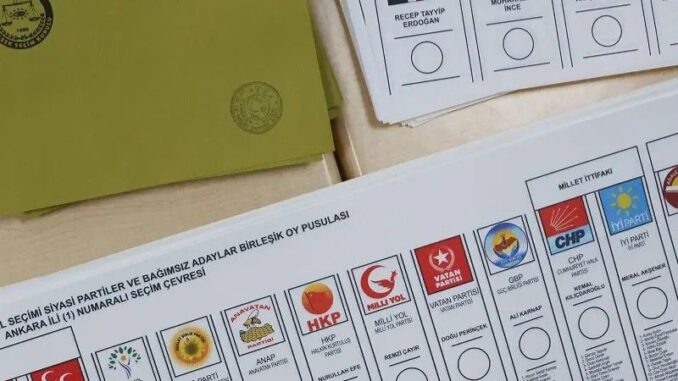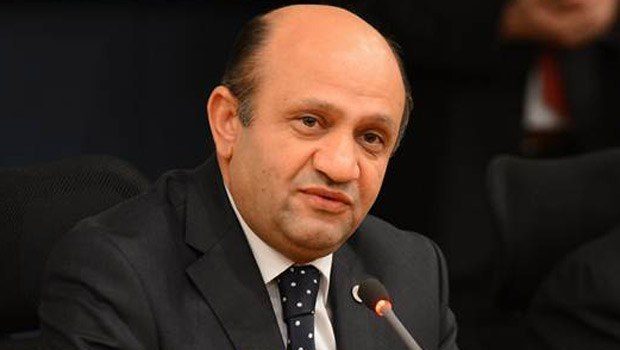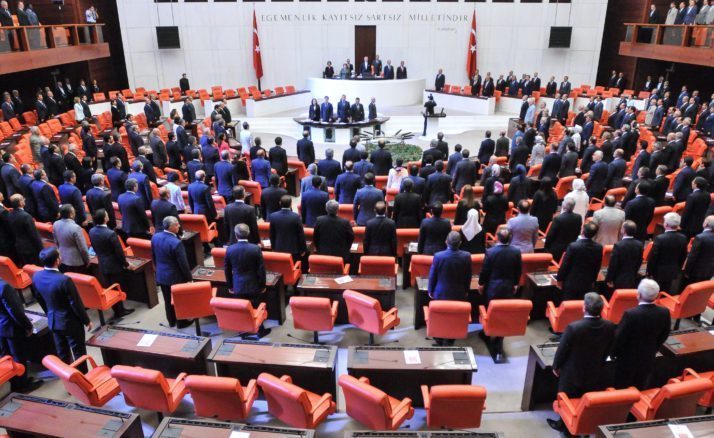
Turkey’s Foreign Ministry criticized the Organization for Security and Co-operation in Europe (OSCE) election observer mission’s report on Türkiye’s elections for being politicized and accusatory.
In a statement, the ministry said the report fails to comply with principles of independent and impartial observation, as it noted that politicized analysis and biased comments damage the credibility of the OSCE mission.
Highlighting that all Turkish authorities have cooperated with 489 observers to ensure they smoothly carried out their work, the ministry said the elections took place in a free, pluralistic, transparent, and fair manner as per international standards, with exemplary voter turnout.
“International observers have confirmed with various statements that the elections in our country are held in a free, pluralistic transparent, and fair environment where ballot box security is ensured, besides adhering to international standards,” the ministry added.
The Organization for Security and Co-operation in Europe (OSCE) Election Observation Mission welcomed peaceful elections in Turkey.
Jan Petersen, the head of the OSCE Election Observation Mission, who has been in Türkiye for six weeks, congratulated the Turkish people for their democratic spirit and high turnout. However, the mission claimed Turkey’s Supreme Election Council (YSK) showed a lack of transparency in its handling of Sunday’s elections.
Western media
Barely hours after it began to become clear Türkiye’s much-anticipated and internationally scrutinized presidential elections would stretch into a runoff, Western media outlets backpedaled in their biased rhetoric toward incumbent President Recep Tayyip Erdogan whose polling success in the first round has been broadly described as a “surprise.”
Some 61 million Turks were called on to vote on Sunday to elect Türkiye’s 13th president and 600 members of Parliament, over three months following two catastrophic earthquakes that killed more than 50,000 people, left millions displaced and homeless in the southeast, amid a cost-of-living crisis, at that.
Erdoğan and his main challenger Kemal Kılıcdaroglu, along with two other candidates, one of whom dropped out of the race mere days before the vote, have campaigned tirelessly, building their promises around the determination to revive the earthquake-hit provinces and deliver more economic growth.
The period, however, was not without outside influence, especially in the form of blatant bias.
The Economist in particular has been leading an intensive campaign against Erdogan, publishing provocative covers, openly backing his opposition, conveniently ignoring the democratic process in Türkiye and urging Turks to “kick Erdoğan out” on May 14.
The magazine has often incurred the wrath of Turkish officials and social media users in recent months leading up to the elections for attempting to direct voters and openly admitting that “an opposition win would mean major geopolitical significance for the West.”
The 49.51% support for Erdogan in the first round, however, was enough for even The Economist to backtrack, whoosh away the anti-Erdogan tags on its social media profiles in mere minutes, and acknowledge that Erdogan now “appears the clear favorite to win in the second round.”
With more than 99% of the ballot boxes opened on Monday, Türkiye’s Supreme Election Council (YSK) counted only 45% for Erdogan’s closest Kılıçdaroğlu, who is heading a six-party opposition alliance that equally “performed even worse” in the parliamentary vote, according to the London-based weekly’s article titled “Erdoğan leads his challenger as Turkey votes.”
The Nation Alliance won 35.1%, translating to about 213 out of the 600 seats in Parliament, losing the majority to Erdogan’s People’s Alliance, which walked away with 49.4% enough to retain a comfortable majority – an estimated 321 seats – in the assembly.
“Turks had not given up on democracy, the turnout in the elections showed. More than 88% of eligible voters went to the polls on May 14, a very high number by any standards,” the magazine said.
According to the British magazine, the election held “much at stake” both for Turkey and its foreign policy, “especially its relationship with Russia.”
Much like The Economist, the tune changed rather quickly in other media outlets across Western Europe, as well, with agencies in France, Germany and Switzerland conceding Erdogan as a “clear favorite” likely to win the second round on May 28.
“If there is a runoff election in two weeks, the incumbent will probably have a head start,” German FAZ wrote.
Pointing to the Justice and Development Party’s (AK Party) parliamentary majority, it argued, “That could persuade many voters in the second round to vote for stable conditions instead of a candidate who would not have his own majority in Parliament.”
According to France24, third-placed candidate Sinan Ogan’s votes will “mostly” go to Erdogan in the runoff, sealing off a guaranteed victory for the incumbent leader.
For another German newspaper, Die Welt, Erdogan’s near 50% was “a great surprising success.”
“Apparently, a considerable number of Turks regard him as a savior,” it said.
Swiss NZZ agreed, noting that Erdogan “regained the trust of 26 million Turks as he scored the best results countrywide in the earthquake region.”
“Parliamentary distribution too gives him a strong hand,” it said.
Indeed, Erdogan has vowed to revive the disaster-stricken zone and deliver at least 319,000 homes within the year. His government has already handed out keys to hundreds of homes for the victims.
He often slams “disruptions from the West” as attempts to “intervene” in Türkiye’s domestic politics, as well as Kılıcdaroglu’s promises to “mend ties with the U.S. and the EU” should he win the top office.
“You cannot decide my country’s fate; it is up to my nation,” Erdoğan reiterated at several rallies across the country.



